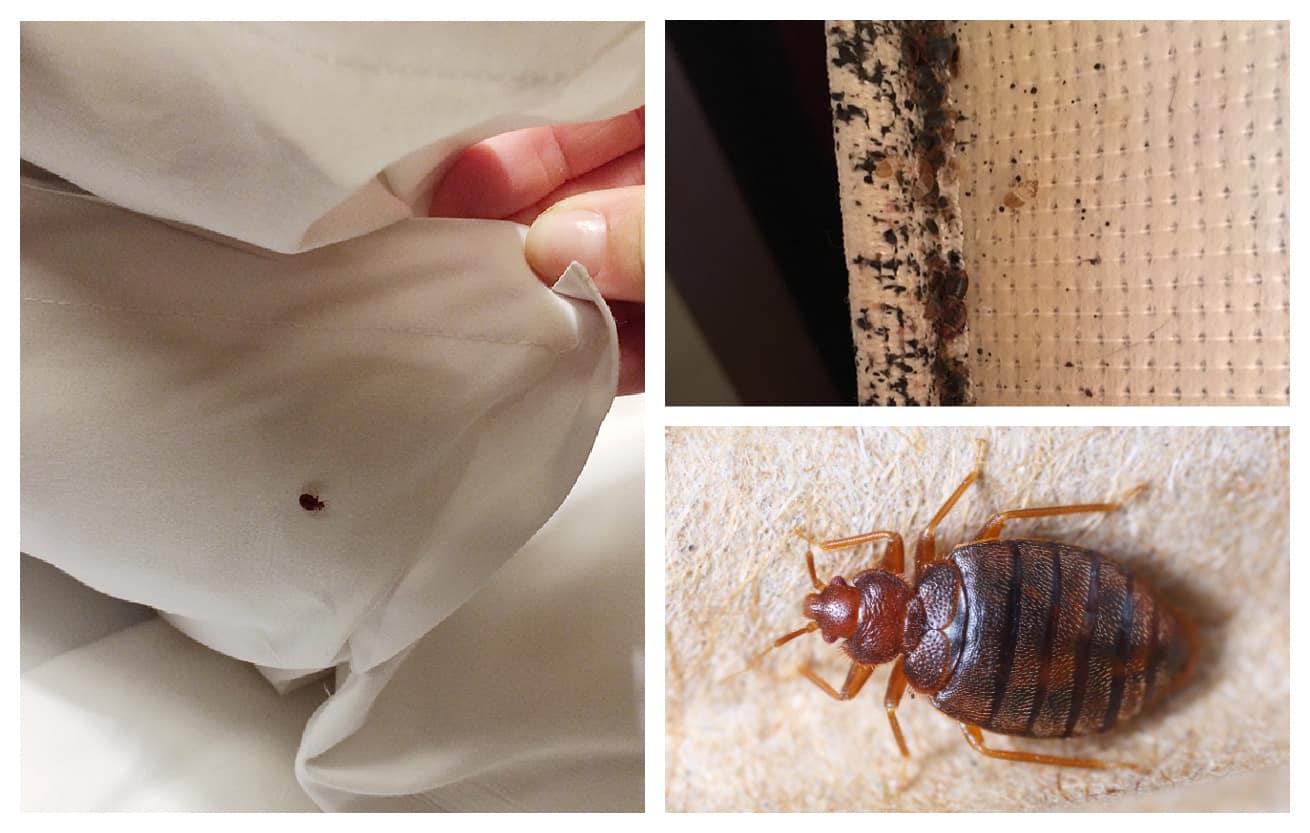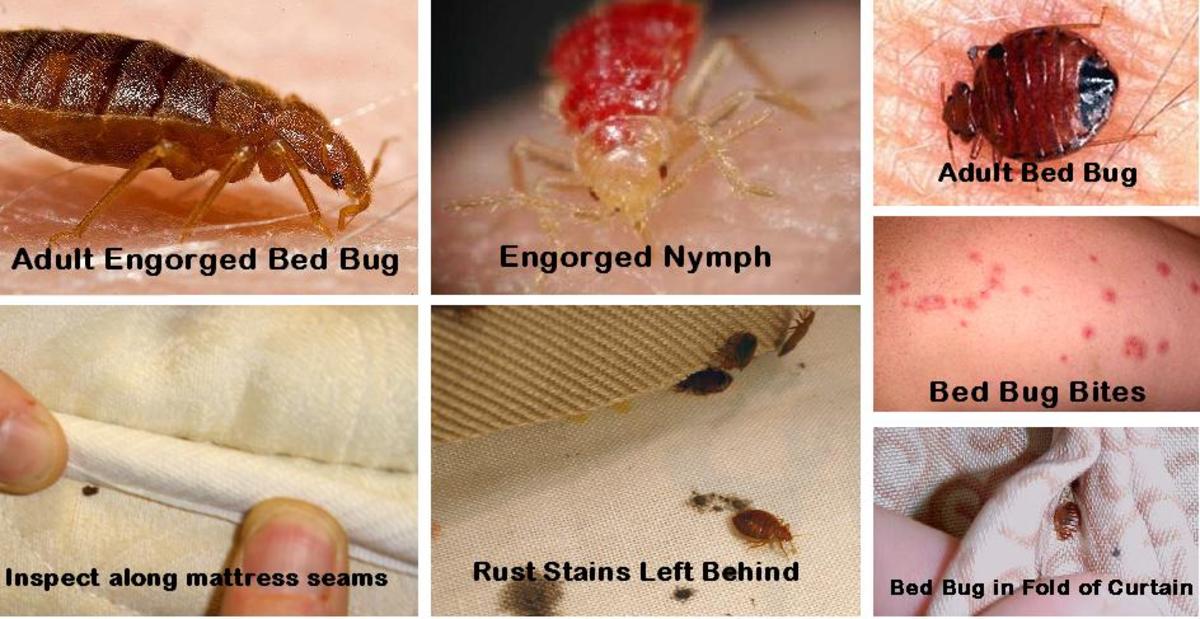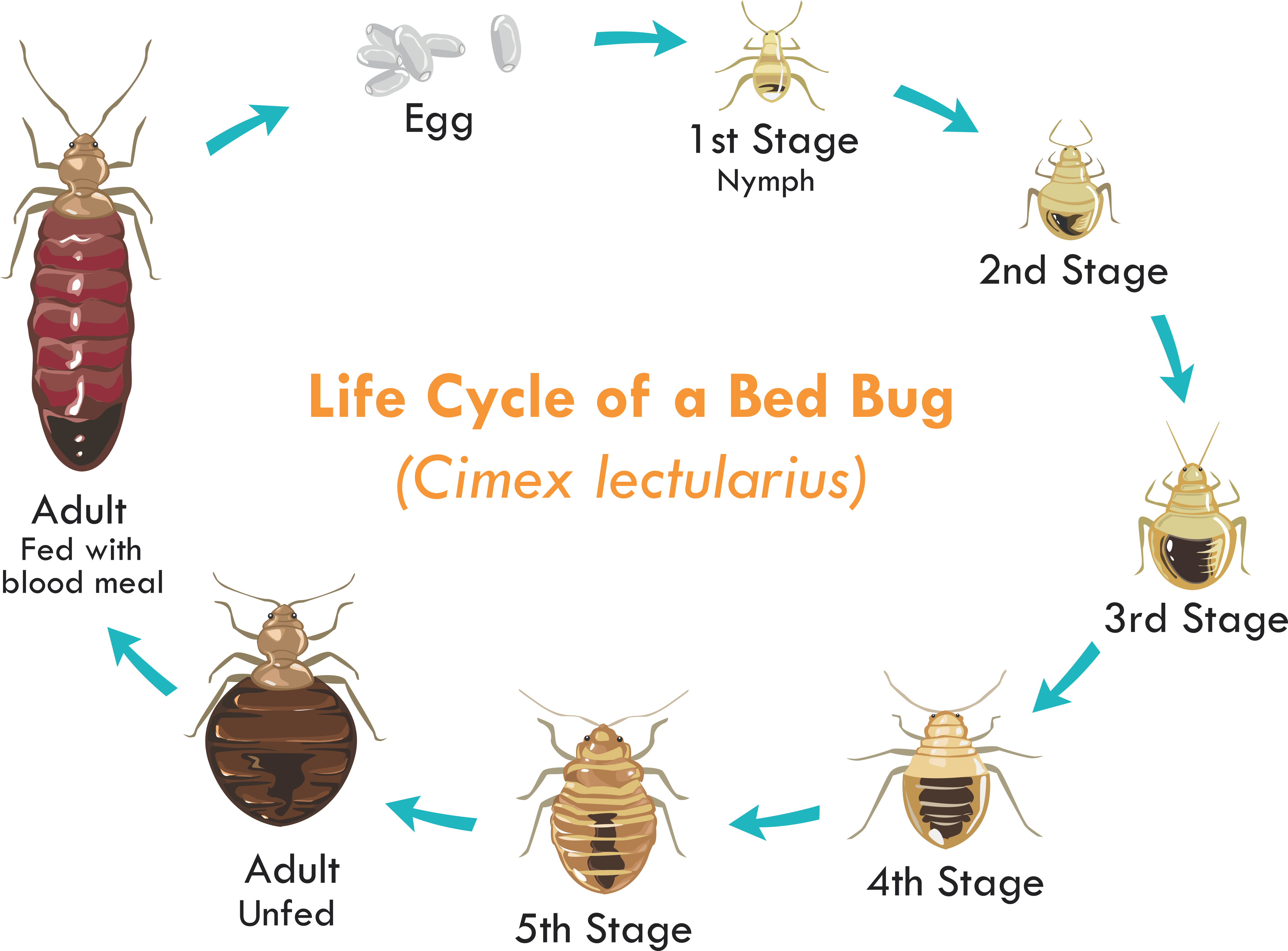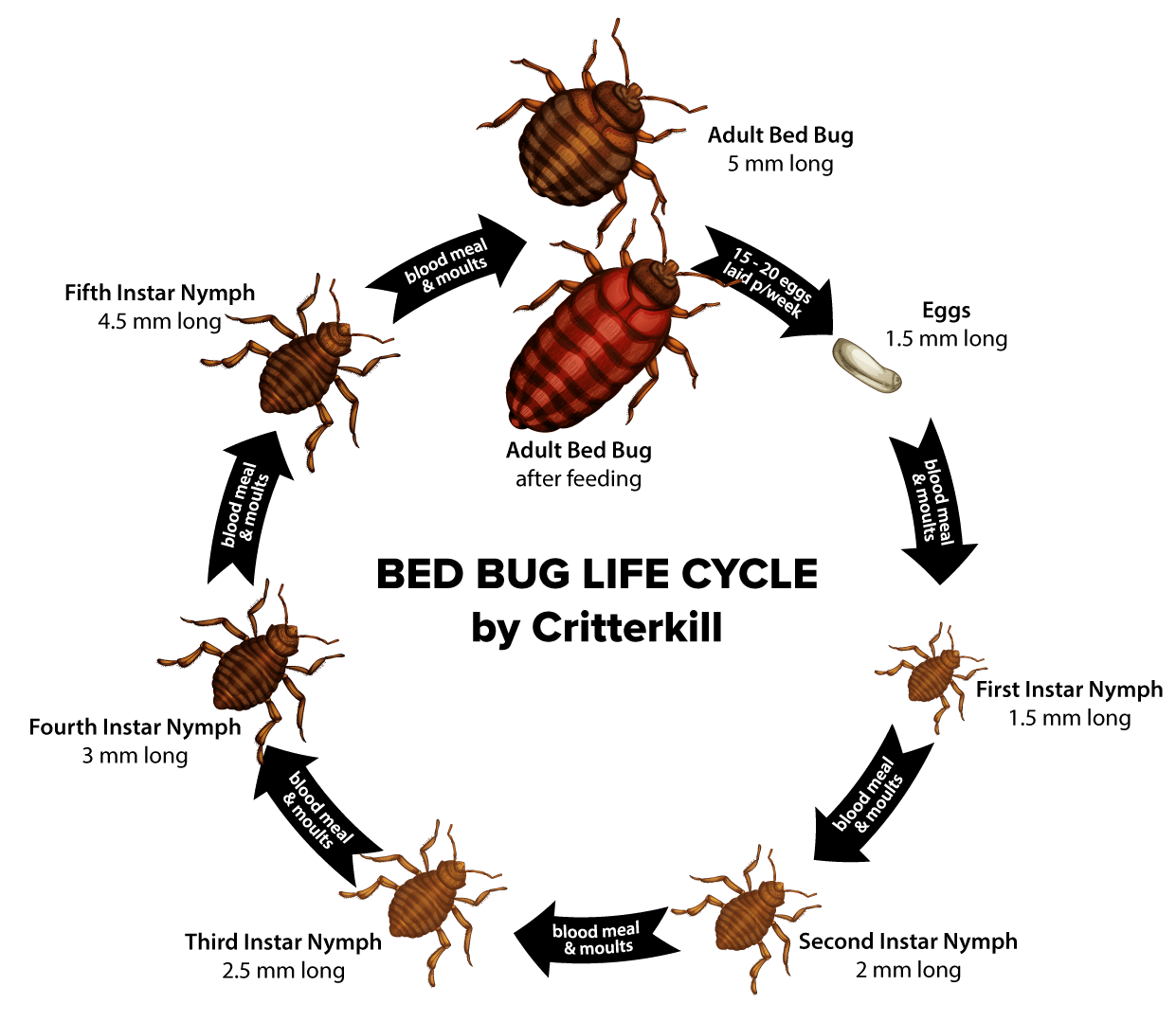It typically takes 2-4 months to completely get rid of bed bugs after treatment. The process can vary.
Dealing with a bed bug infestation can be a frustrating experience. From identifying the problem to implementing a treatment plan, getting rid of bed bugs requires patience and perseverance. We will explore the timeline for eliminating bed bugs, factors that may affect the duration of treatment, and effective strategies to eradicate these pesky insects for good.
By understanding the necessary steps and timeline involved, you can successfully rid your home of bed bugs and restore comfort and peace of mind.

Credit: www.everydaycheapskate.com
Timeline Of Elimination
Eliminating bed bugs can range from several weeks to months due to their resilience and life cycle. Factors influencing the process include infestation severity, treatment method, and consistency in application. Cooperation with professional pest control can expedite eradication.
Immediate Steps After Discovery
After discovering bed bugs, immediately isolate infested materials in sealed plastic bags.Thoroughly vacuum all surfaces, focusing on seams, crevices, and cracks where bed bugs hide.Wash bedding and clothing in hot water followed by high-heat drying.Professional Treatment Timeline
Initial inspection by professionals determines the severity of infestation within 24-48 hours.Treatment plan is customized based on infestation level, typically scheduled within 1-2 weeks.Follow-up inspections are conducted periodically to monitor progress and ensure complete eradication.
Credit: dengarden.com
Factors Affecting Eradication
When dealing with a bed bug infestation, one of the first questions that may come to mind is, “How long does it take to get rid of bed bugs after treatment?” The answer to this question depends on several factors that can affect the eradication process. Let’s take a closer look at these factors that play a crucial role in eliminating bed bugs effectively.
Extent Of Infestation
The extent of the bed bug infestation directly impacts how long it will take to completely get rid of them.
- The number of bed bugs present: A larger population of bed bugs will require more time and effort to eliminate.
- Spread throughout the property: If the bed bugs have infested multiple rooms or areas, the eradication process can take longer.
- Hidden or hard-to-reach areas: Bed bugs can hide in various places, such as cracks, crevices, or behind walls, which may require additional treatments or thorough inspections.
It is important to understand that a severe infestation may take more time to completely eradicate, requiring multiple treatments.
Type Of Treatment Methods Used
The effectiveness of the treatment methods employed also plays a significant role in the speed of eradication.
- Chemical Treatments: These involve the application of pesticides or insecticides. The effectiveness of chemical treatments can depend on factors like the choice of products used, application techniques, and the level of resistance developed by the bed bugs. Additionally, repeated applications may be required to target different stages of the bed bug life cycle.
- Heat Treatments: Using heat to kill bed bugs is gaining popularity due to its effectiveness, especially in treating infestations in larger areas or heavily infested spaces. Heat treatments can rapidly raise the temperature to a level that is lethal for bed bugs in all stages of their lifecycle.
- Cryogenic Freezing: This method involves freezing bed bugs and their eggs using extremely low temperatures. While cryogenic freezing can be effective, it is best suited for localized infestations and may not reach hidden or inaccessible areas.
Each treatment method has its advantages and limitations, and their effectiveness can vary depending on factors such as the severity of the infestation and the level of preparation done before treatment.
Understanding these factors that affect the eradication process is crucial in managing expectations and determining the necessary steps to eliminate bed bugs effectively. It is recommended to consult a professional pest control service to assess the infestation and devise a customized treatment plan tailored to your specific situation.
Home Remedies Vs. Professional Help
When dealing with a bed bug infestation, time is of the essence. Homeowners often find themselves at a crossroads, debating whether to tackle the problem with DIY methods or seek professional help. Both options have their pros and cons, and understanding the effectiveness of each can help in making an informed decision on how to proceed.
Effectiveness Of Diy Methods
DIY methods for bed bug removal are widely available and can be appealing due to their lower cost. Common home remedies include vacuuming, using steam treatments, and applying over-the-counter pesticides. While these methods may show some initial success, they often fall short in completely eradicating the infestation. Bed bugs are resilient creatures and may develop resistance to certain pesticides over time, rendering DIY treatments ineffective in the long run.
Advantages Of Hiring Exterminators
Professional exterminators bring expertise and specialized equipment to the table, offering a comprehensive solution to the bed bug problem. Trained professionals can accurately assess the extent of the infestation, locate hiding spots, and implement targeted treatments. Additionally, exterminators use safe and effective pesticides that are not readily available to consumers, ensuring a higher success rate in eliminating bed bugs. Furthermore, professional help often comes with guarantees and the option for follow-up treatments, providing homeowners with peace of mind and a long-term solution to their infestation.
Preventive Measures
Preventive measures play a crucial role in ensuring that bed bugs do not return after treatment. While professional extermination can effectively eliminate bed bugs, maintaining a proactive approach is essential. Here are some preventive measures to consider:
Tips For Avoiding Re-infestation
Preventing re-infestation of bed bugs involves being vigilant and taking proactive steps to avoid potential infestations. Here are some tips to help avoid re-infestation:
- Seal Cracks and Crevices: Seal any cracks or crevices in walls, floors, or furniture where bed bugs could hide.
- Use Protective Covers: Use mattress and box spring covers to encase the bed, limiting bed bug access to these areas.
- Declutter Your Living Space: Reduce clutter and keep your living space tidy to minimize hiding spots for bed bugs.
- Inspect Second-Hand Items: Before bringing in used furniture or clothing, thoroughly inspect them for any signs of bed bugs.
Regular Inspections And Maintenance
Regular inspections and maintenance are essential in preventing a bed bug reappearance. Here are some key points to consider for regular inspections and maintenance:
- Inspect Regularly: Conduct periodic inspections of your living space, paying close attention to areas where bed bugs are known to hide.
- Vacuum Frequently: Regularly vacuum carpets, furniture, and other potential hiding spots for bed bugs to help remove any potential infestations.
- Wash and Dry Bedding: Wash and dry bedding, curtains, and clothing at high temperatures to kill any potential bed bugs and their eggs.
Emotional Toll Of Bed Bug Infestations
Dealing with a bed bug infestation can be emotionally draining. After undergoing treatment, it typically takes about two to four weeks to get rid of bed bugs completely. However, the emotional toll of dealing with the aftermath can last much longer, impacting mental well-being.
Psychological Impact On Residents
Dealing with a bed bug infestation can have severe psychological effects on residents. The constant fear of being bitten, the anxiety of having these tiny, intruding pests in your home, and the feeling of being invaded can take a toll on your mental well-being.
Bed bugs are known to cause sleep disturbances, leaving individuals tired and irritable. The thought of sharing your bed with blood-sucking insects can lead to insomnia and a persistent feeling of discomfort.
Furthermore, the psychological impact of bed bugs can extend beyond the bedroom. The stigma associated with infestations can lead to embarrassment and a sense of shame, affecting social interactions and self-esteem. It’s important to recognize that bed bugs are not a sign of poor hygiene or cleanliness, as they can infest even the cleanest of homes.
Coping Strategies
While it’s understandable to feel overwhelmed by the emotional toll of bed bug infestations, there are coping strategies that can help you regain a sense of control and well-being.
1. Seek Support: Reach out to friends, family, or support groups who can offer understanding and empathy. Sharing your experience with others who have gone through similar situations can be immensely comforting.
2. Educate Yourself: Knowledge is power. Learn more about bed bugs, their behavior, and effective methods of eradication. Understanding the infestation can help alleviate some of the anxiety surrounding it.
3. Practice Self-Care: Take care of yourself both mentally and physically. Engage in activities that bring you joy, practice relaxation techniques, and maintain a healthy lifestyle to help manage stress.
4. Consult Professionals: Don’t hesitate to seek professional help. Pest control experts can provide guidance and eliminate the infestation effectively, giving you peace of mind.
5. Create a Supportive Environment: Surround yourself with a clean, clutter-free living space. By decluttering and implementing preventative measures, you can minimize the chances of reinfestation and ensure a sense of security in your home.
Legal And Financial Ramifications
Responsibilities Of Landlords And Tenants
Landlords bear responsibility to address bed bug issues, comply with local laws, and provide timely treatment.
Tenants must report infestations promptly, cooperate with inspections, and follow treatment protocols.
Costs Involved In Treatment
Treatment costs can vary based on severity of infestation and type of treatment required.
- Professional treatment costs may range from $500 to $1500 for a typical infestation.
- Additional expenses like replacement of furniture may further increase costs.

Credit: www.ohiogotbugs.com
Frequently Asked Questions On How Long Does It Take To Get Rid Of Bed Bugs After?
How Long Does It Take To Get Rid Of Bed Bugs Completely?
It typically takes anywhere from a few weeks to several months to fully eliminate a bed bug infestation. The duration depends on the size of the infestation, treatment method used, and the cooperation of the residents. A comprehensive approach that includes professional treatment, thorough cleaning, and ongoing monitoring is crucial for successful eradication.
Can I Get Rid Of Bed Bugs On My Own?
While it’s possible to tackle a bed bug infestation on your own, it is highly recommended to hire a professional pest control service. Bed bugs are notoriously difficult to eliminate, and DIY methods often fail to eradicate the entire population.
Professional exterminators have the expertise, specialized equipment, and effective treatments that ensure successful elimination and prevent reinfestation.
How Can I Prevent A Bed Bug Infestation?
To prevent a bed bug infestation, it is important to be vigilant and proactive. Regularly inspect your bedding, furniture, and luggage for any signs of bed bugs. When traveling, use protective covers on your luggage and avoid placing it on infested surfaces.
Additionally, avoid acquiring used furniture or bedding without proper inspection. If you suspect bed bugs, take immediate action to prevent the infestation from spreading.
Conclusion
Getting rid of bed bugs can be a time-consuming process, taking several weeks. By following a comprehensive eradication plan and maintaining vigilance, you can effectively eliminate these pests from your home. Remember to seek professional help if the infestation is severe.
With patience and perseverance, you can regain a bed bug-free environment.
Related posts:

I’m MD Tanvir, and I bring years of expertise gained from working closely with pest control companies to the forefront. My journey in the industry has inspired me to launch Bug Battler, a platform aimed at equipping people with the know-how to combat pests autonomously. Through Bug Battler, I aim to empower individuals with practical insights to tackle pest infestations effectively.

